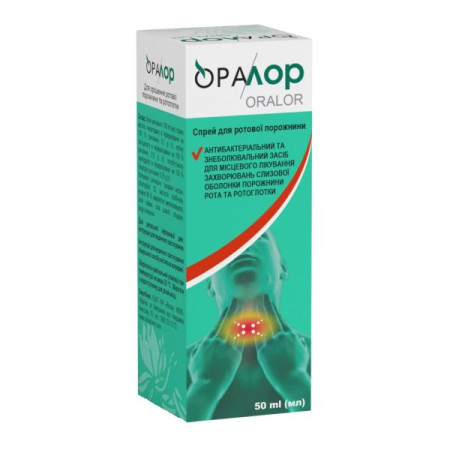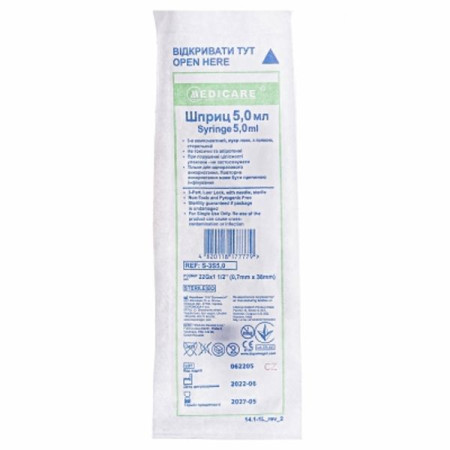Vitamin C 500 chewable tablets 0.5 g blister with orange flavor No. 10

Instructions Vitamin C 500 chewable tablets 0.5 g blister with orange flavor No. 10
Composition
active ingredient: ascorbic acid;
1 tablet contains 200 mg of ascorbic acid (vitamin C), 337 mg of sodium ascorbate (corresponding to 300 mg of ascorbic acid);
excipients:
peach-flavored tablets
sorbitol (E 420), aspartame (E 951), acesulfame potassium, microcrystalline cellulose, calcium stearate, peach flavor, colloidal anhydrous silicon dioxide, curcumin dye (E 100);
orange-flavored tablets
sorbitol (E 420), aspartame (E 951), acesulfame potassium, microcrystalline cellulose, calcium stearate, orange flavoring, colloidal anhydrous silicon dioxide, sunset yellow FCF dye (E 110);
lemon-flavored tablets
sorbitol (E 420), aspartame (E 951), acesulfame potassium, microcrystalline cellulose, calcium stearate, lemon flavor, colloidal anhydrous silicon dioxide, quinoline yellow dye (E 104).
Dosage form
Chewable tablets.
Main physicochemical properties:
peach-flavored tablets
tablets of light brown-yellow color with inclusions of yellow and/or yellow-orange color, round shape, with a flat surface, a score and a bevel. White inclusions are allowed on the surface;
orange-flavored tablets
pink-orange tablets, round, with a flat surface, a score and a bevel or round, with a flat surface, on one side there is a figured pattern in the form of a cut citrus. White inclusions are allowed on the surface;
lemon-flavored tablets
Light yellow, round tablets with a flat surface, a score and a bevel or round tablets with a flat surface, one side of which has a figured pattern in the form of a cut citrus. White inclusions are allowed on the surface.
Pharmacotherapeutic group
Vitamins. Simple preparations of ascorbic acid (vitamin C). ATX code A11G A01.
Vitamin C (ascorbic acid) belongs to the group of water-soluble vitamins.
Pharmacological properties
Pharmacodynamics
Ascorbic acid is necessary for the proper functioning and formation of connective tissues, in particular intercellular substance and collagen. In the synthesis of collagen, it participates in the hydroxylation of proline and lysine in the peptide chain. Ascorbic acid is part of many redox reactions in the body and is involved, for example, in the metabolism of phenylalanine, tyrosine, folic acid, norepinephrine, histamine and some enzyme systems involved in the synthesis of lipids, proteins and in the hydroxylation of carnitine or serotonin. Ascorbic acid stabilizes the capillary wall and increases iron absorption.
Pharmacokinetics
Ascorbic acid is easily absorbed in the gastrointestinal tract and penetrates into the tissues. The highest concentration is found in the adrenal glands, pituitary gland and intestinal wall. It is biotransformed in the liver. The main metabolite of ascorbic acid is oxalic acid, which is excreted in the urine. Urinary excretion is a sign of saturation of the body with vitamin C. Ascorbic acid penetrates the placenta and into breast milk. It can be removed from the body by hemodialysis.
Indication
For the treatment of hypo- and avitaminosis C.
Ensuring the body's increased need for vitamin C:
during acute respiratory and infectious diseases;
during the period of convalescence after serious illnesses and surgeries;
for various intoxications, hemorrhagic diatheses, connective tissue diseases (rheumatoid arthritis), bleeding (nasal, pulmonary, uterine);
for radiation sickness, hepatitis, cholecystitis, Addison's disease, soft tissue injuries that heal slowly, infected wounds and bone fractures.
Contraindication
Hypersensitivity to ascorbic acid and other components of the drug.
Tendency to thrombosis; thrombophlebitis; diabetes mellitus; urolithiasis.
Children under 14 years old.
It should be prescribed with extreme caution to patients with impaired iron metabolism (hemosiderosis, hemochromatosis, thalassemia).
Fructose intolerance; glucose/galactose malabsorption syndrome.
Severe kidney disease. Phenylketonuria (since the drug contains aspartame).
Interaction with other medicinal products and other types of interactions
When used simultaneously, ascorbic acid enhances the absorption of iron, penicillin, ethinyl estradiol from the gastrointestinal tract. A similar effect applies to aluminum, so this must be taken into account when simultaneously treating with antacids containing aluminum.
Ascorbic acid, when used simultaneously, reduces the effectiveness of heparin and anticoagulants.
Absorption of ascorbic acid is reduced with simultaneous use of oral contraceptives, consumption of fruit or vegetable juices, and alkaline drinks. Simultaneous
Large doses of the drug reduce the effectiveness of tricyclic antidepressants, neuroleptics - phenothiazine derivatives, tubular reabsorption of amphetamine, and disrupt the excretion of mexiletine by the kidneys.
Ascorbic acid increases the total clearance of ethyl alcohol. Quinolone drugs, calcium chloride, salicylates, tetracyclines, corticosteroids, with prolonged use, reduce the reserves of ascorbic acid in the body.
At high doses, ascorbic acid affects the resorption of vitamin B12.
Vitamin C increases the excretion of oxalates in the urine, thus increasing the risk of oxalate stone formation in the urine. Vitamin C increases the risk of crystalluria during treatment with salicylates.
Application features
Since vitamin C has a mild stimulating effect, it is not recommended to take this medicine at the end of the day.
Due to the stimulating effect of ascorbic acid on the formation of corticosteroid hormones, when using it in large doses, monitoring of kidney function and blood pressure is required.
The drug should be used with caution in cases of increased blood clotting.
It should be prescribed with particular caution to patients:
with glucose-6-phosphate dehydrogenase deficiency (high doses of ascorbic acid can provoke hemolytic anemia);
with a history of nephrolithiasis (risk of hyperoxaluria and oxalate deposits in the urinary tract after taking large doses of ascorbic acid).
Long-term use of large doses of ascorbic acid may accelerate its own metabolism, which may lead to paradoxical hypovitaminosis after discontinuation of treatment. The recommended dose should not be exceeded.
Should not be used simultaneously with other drugs containing vitamin C.
The drug should be used with caution in polycythemia and leukemia.
Absorption of ascorbic acid may be altered by impaired intestinal motility, enteritis, or achilli (inhibition of gastric secretion).
It should be noted that the use of vitamin C in high doses may alter some laboratory test results (blood glucose, bilirubin, transaminases, uric acid, creatinine, inorganic phosphates). The result of the study for occult blood in the stool may be negative.
The medicine contains aspartame (E 951) - a source of phenylalanine, which is dangerous for patients with phenylketonuria. The medicine contains the dye sunset yellow FCF (E110), which may cause allergic reactions.
If you have been told by your doctor that you have an intolerance to some sugars, contact your doctor before taking this medicine. This medicine contains sorbitol (E420), so patients with rare hereditary problems of fructose intolerance should not take this medicine.
Use during pregnancy or breastfeeding
Long-term use of vitamin C in high doses during pregnancy may negatively affect fetal development, so the recommended dosage should be followed.
When breastfeeding, you should refrain from taking the drug, as ascorbic acid penetrates into breast milk.
Ability to influence reaction speed when driving vehicles or other mechanisms
Does not affect.
Method of administration and doses
The medicine should be taken orally after meals, chewing the tablet.
Adults and children over 14 years of age should take 1 tablet (500 mg) per day for therapeutic purposes. The duration of treatment is 10–15 days.
For acute respiratory and infectious diseases, it is recommended for adults to take 1–2 tablets (500–1000 mg) per day (in 2 doses) for 7–10 days.
Then – ½ tablet (250 mg) per day. To obtain the required dosage, tablets with the appropriate content of the active substance should be used.
The duration of treatment is determined by the doctor depending on the patient's condition and the course of the disease.
Children
For children under 14 years of age, it is recommended to use the drug in a different dosage form.
Overdose
Vitamin C is well tolerated. Ascorbic acid is a water-soluble vitamin, its excess is excreted in the urine. However, prolonged use of vitamin C in large doses may suppress the function of the insular apparatus of the pancreas, which requires monitoring of the condition of the latter.
Overdose may lead to changes in renal excretion of ascorbic and uric acids during urine acetylation with the risk of precipitation of oxalate stones.
The use of large doses of the drug may lead to vomiting, nausea, or diarrhea, which disappear after its withdrawal.
Treatment is symptomatic.
Adverse reactions
Vitamin C is well tolerated at recommended doses, but the following side effects may occur:
from the digestive tract: when used in doses exceeding 1000 mg per day - irritation of the digestive tract mucosa, heartburn, nausea, vomiting, diarrhea, stomach cramps;
from the urinary system: damage to the glomerular apparatus of the kidneys, renal failure, crystalluria, formation of urate, cystine and oxalate stones in the kidneys and urinary tract;
from the endocrine system: damage to the insular apparatus of the pancreas (hyperglycemia, glucosuria) and impaired glycogen synthesis up to the onset of diabetes mellitus;
from the cardiovascular system: arterial hypertension, myocardial dystrophy;
from the hematopoietic system: thrombocytosis, thrombosis, hemolytic anemia, hyperprothrombinemia, erythrocytopenia, neutrophilic leukocytosis; in patients with glucose-6-phosphate dehydrogenase deficiency of blood cells, hemolysis of erythrocytes is possible;
from the nervous system: increased excitability, fatigue, sleep disturbances, headache;
Metabolic: zinc and copper metabolism disorders;
others: feeling hot.
Expiration date
2 years.
Storage conditions
Store in the original packaging at a temperature not exceeding 25 ºС.
Keep out of reach of children.
Packaging
10 tablets in blisters.
10 tablets in a blister; 3 blisters in a pack.
10 tablets in a blister; 6 blisters in a pack.
30 tablets in containers (jars).
30 tablets in a container (jar); 1 container (jar) in a pack.
Vacation category
Without a prescription.
Producer
JSC "KYIV VITAMIN FACTORY".
Location of the manufacturer and address of its place of business
04073, Ukraine, Kyiv, Kopylivska St., 38.
Website: www.vitamin.com.ua
There are no reviews for this product.
There are no reviews for this product, be the first to leave your review.
No questions about this product, be the first and ask your question.











